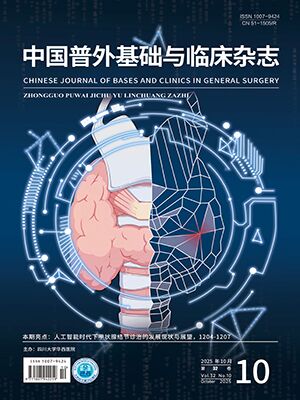Objective To summarize the clinical characteristics, potential molecular mechanisms, and predictive biomarkers of hyperprogressive disease (HPD) associated with the treatment of hepatocellular carcinoma (HCC) with immune checkpoint inhibitors and to explore its clinical implications. Methods The relevant domestic and international literature was reviewed to analyze the definition, mechanisms, and predictive factors of HPD. Particular attention was given to key factors affecting HPD development, including clinical characteristics, tumor microenvironment, genetic mutations, and inflammatory factors. Results HPD significantly decreased the survival of HCC patients. Its occurrence might be associated with individual variability, dysregulation of the tumor microenvironment, tumor-related genetic mutations, and elevated level of inflammatory factors. Clinical features such as female, advanced age, elevated Child-Pugh score, portal vein tumor thrombus could identify high-risk populations for HPD. Blood-based biomarkers such as neutrophil-to-lymphocyte ratio, lactate dehydrogenase, and alpha-fetoprotein showed potential value in predicting HPD. Conclusions Systematic investigation of the molecular mechanisms and predictive biomarkers of HPD are crucial for optimizing immunotherapy strategies and improving patient’s outcomes. Large-scale, multi-center studies are needed to achieve precise prediction and personalized intervention in the future.
Citation:
PANG Beichuan, TAN Yuwei, LI Youwei, ZHANG Yu. Research progress on potential molecular mechanisms and predictive factors of hyperprogressive disease in immunotherapy of hepatocellular carcinoma. CHINESE JOURNAL OF BASES AND CLINICS IN GENERAL SURGERY, 2025, 32(7): 911-915. doi: 10.7507/1007-9424.202412073
Copy
Copyright © the editorial department of CHINESE JOURNAL OF BASES AND CLINICS IN GENERAL SURGERY of West China Medical Publisher. All rights reserved
| 1. |
|
| 2. |
|
| 3. |
|
| 4. |
|
| 5. |
|
| 6. |
|
| 7. |
|
| 8. |
|
| 9. |
|
| 10. |
|
| 11. |
|
| 12. |
|
| 13. |
|
| 14. |
|
| 15. |
|
| 16. |
Fujita M, Yamaguchi R, Hasegawa T, et al. Classification of primary liver cancer with immunosuppression mechanisms and correlation with genomic alterations. EBioMedicine, 2020, 53: 102659.
|
| 17. |
|
| 18. |
|
| 19. |
|
| 20. |
|
| 21. |
|
| 22. |
|
| 23. |
Qiu XY, Hu DX, Chen WQ, et al. PD-L1 confers glioblastoma multiforme malignancy via Ras binding and Ras/Erk/EMT activation. Biochim Biophys Acta Mol Basis Dis, 2018, 1864(5 Pt A): 1754-1769.
|
| 24. |
|
| 25. |
|
| 26. |
|
| 27. |
|
| 28. |
|
| 29. |
|
| 30. |
|
| 31. |
|
| 32. |
|
| 33. |
|
| 34. |
|
| 35. |
|
| 36. |
|
| 37. |
|
| 38. |
|
| 39. |
|
| 40. |
|
- 1.
- 2.
- 3.
- 4.
- 5.
- 6.
- 7.
- 8.
- 9.
- 10.
- 11.
- 12.
- 13.
- 14.
- 15.
- 16. Fujita M, Yamaguchi R, Hasegawa T, et al. Classification of primary liver cancer with immunosuppression mechanisms and correlation with genomic alterations. EBioMedicine, 2020, 53: 102659.
- 17.
- 18.
- 19.
- 20.
- 21.
- 22.
- 23. Qiu XY, Hu DX, Chen WQ, et al. PD-L1 confers glioblastoma multiforme malignancy via Ras binding and Ras/Erk/EMT activation. Biochim Biophys Acta Mol Basis Dis, 2018, 1864(5 Pt A): 1754-1769.
- 24.
- 25.
- 26.
- 27.
- 28.
- 29.
- 30.
- 31.
- 32.
- 33.
- 34.
- 35.
- 36.
- 37.
- 38.
- 39.
- 40.




